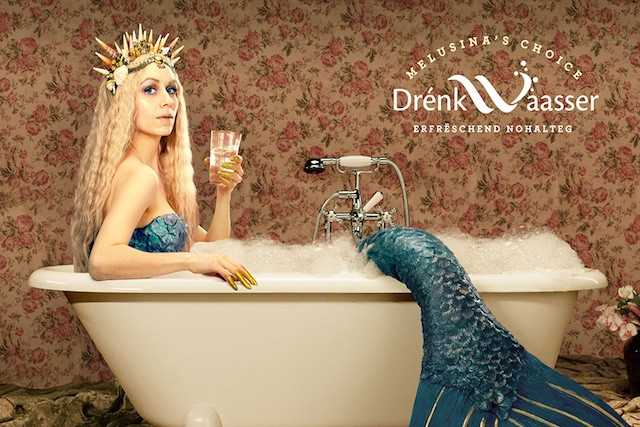“Melusina’s Choice” plays on the legend of the mysterious wife of Count Siegfried, Melusina, who turned into a mermaid and vanished. Launched on Monday by not-for-profit Aluseau to mark world water day, the campaign aims to encourage people to trust and value the country’s tap water.
“Tap water is a local and natural product, easily accessible by everyone and everywhere and does not require plastic or roads to be transported. As such, it is a practical and ecological choice”, said green environment minister Carole Dieschbourg, adding: “Tap water is also the most regulated and controlled food in Luxembourg and therefore a high quality, safe and healthy product. And people who get into the habit of drinking tap water to refresh themselves daily will save a lot of money".
According to a recent survey, eight in ten people drink tap water but four out of ten people do not drink tap water on a daily basis.
“The drinking water suppliers in Luxembourg, i.e. the 102 municipalities as well as the six syndicates, have invested a lot in the field of drinking water and guarantee the compliance of the drinking water through regular and effective controls,” the environment ministry said in a press release.
To accompany the campaign, in the coming months, the ministry will publish short videos, infographics and posters that will be published every week on its Facebook page and on the websites of the three partner organizations (www.drenkwaasser.lu; www.waasser.lu; www.emwelt.lu)
Later this year, Luxembourg will also introduce a quality label for water suppliers who submit a risk analysis for their water networks and infrastructure. The “Drëpsi” label is graded according to adhesion to the World Health Organization’s Water Safety Plan. Starting in 2022, all residents can check the Drëpsi label for their commune’s water.
“This label is now a living label, which will be revalued every year by the responsible administration. This pioneering initiative has been recognized by other European countries and serves as an example of good practice", explains Jean-Paul Lickes, director of AGE, the governmental body that coordinates the management of water resources in Luxembourg.
